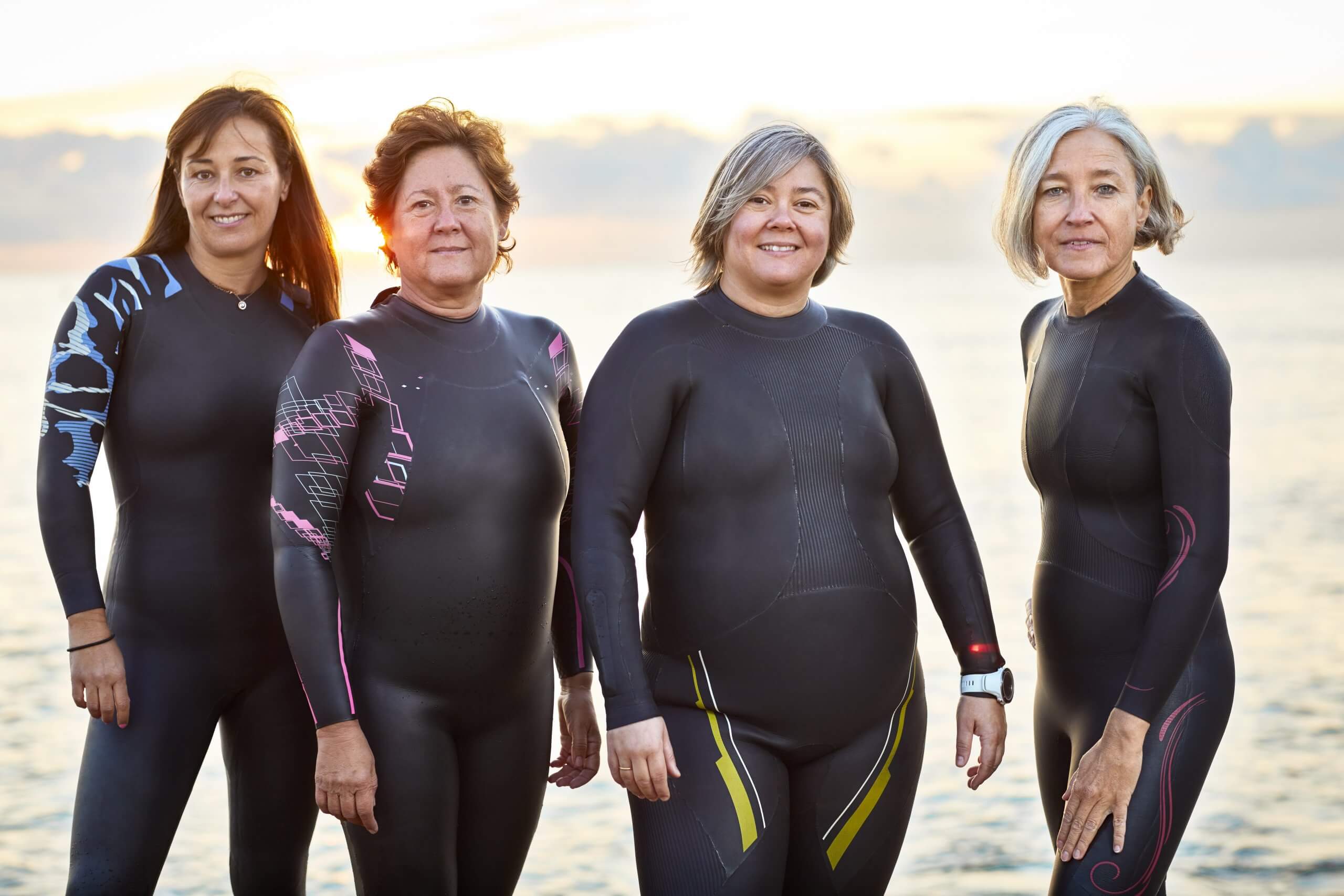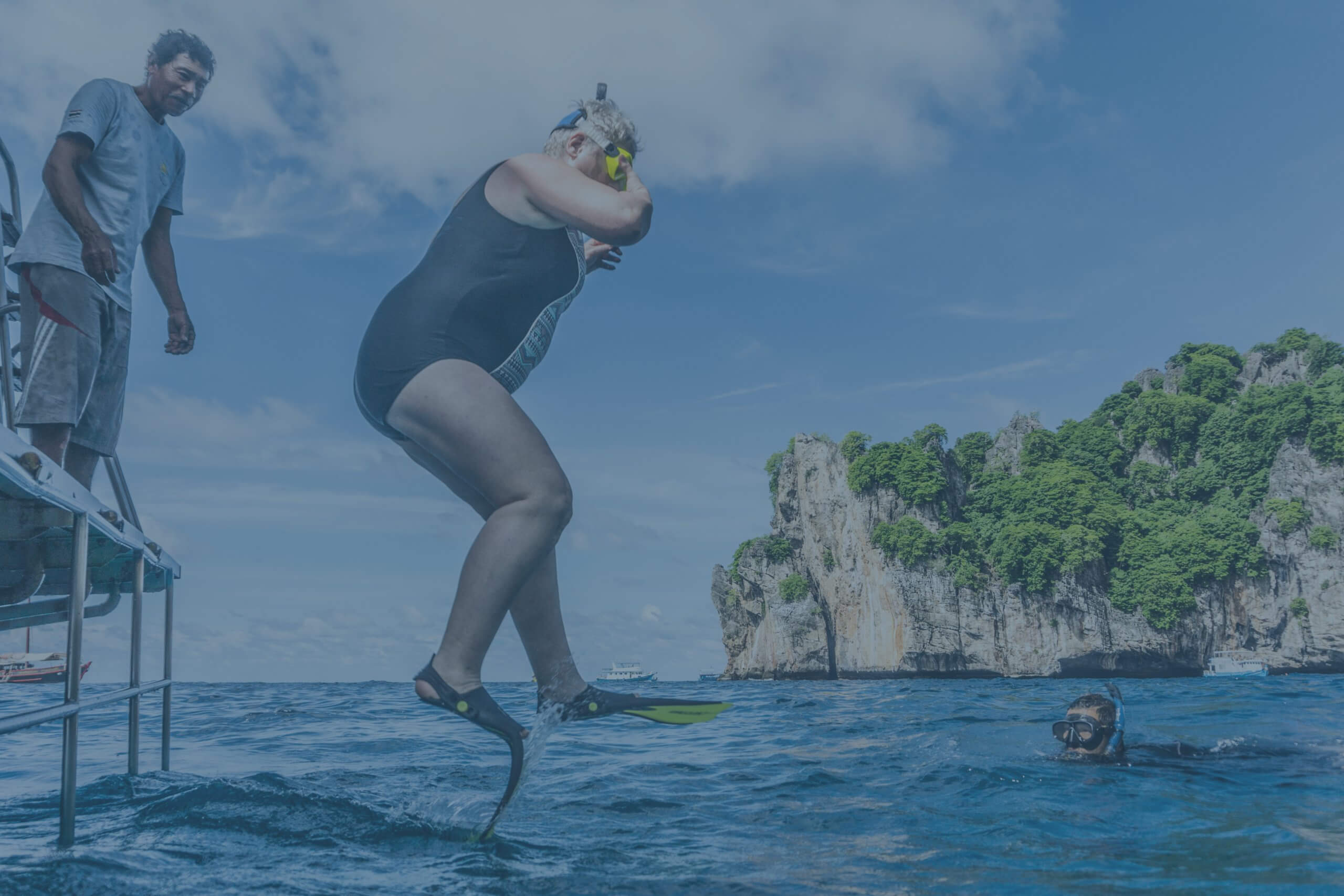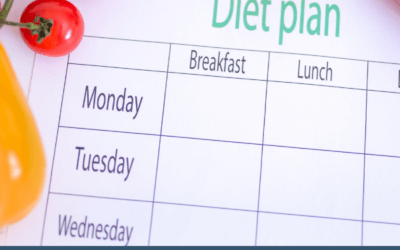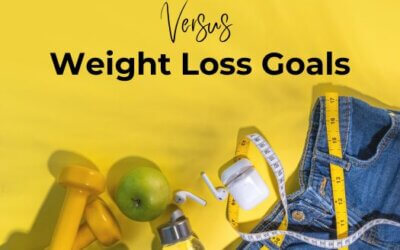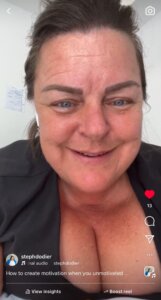
Welcome to
Beyond the Food Blog
A catalog of evidence-based articles written by Stephanie Dodier Clinical Nutritionist on all topics supporting the non-diet approach to health.
Welcome to
Beyond the Food Blog
A catalog of evidence-based articles written by Stephanie Dodier Clinical Nutritionist on all topics supporting the non-diet approach to health.
Our Most Recent Articles
Health Coach—Should You Stop Selling Weight Loss?

As a health coach, the question of whether to stop selling weight loss is one that touches not just your business but also your values and ethics. For many, weight loss programs seem like a natural fit because “it’s what sells” or “it’s what clients want.” But is selling weight loss really aligned with what you believe in?
This guide is for health coaches considering the transition to non-diet health coaching. We’ll dive into the ethical and emotional challenges of stepping away from weight loss-focused programs, share real conversations from the field, and provide a roadmap for creating a business that’s values-aligned and impactful.
Health Coaching Selling Weight Loss: Why It Feels Safe
Let’s start by acknowledging the reality: in a fatphobic society, weight loss is seen as a desirable outcome. From social media influencers to healthcare professionals, the pervasive message is that shrinking your body equals success, health, and happiness.
As coaches, we’re taught to “sell people what they want and give them what they need.” For many of us, that’s meant marketing weight loss programs to draw clients in, even if we later shift the focus to sustainable, non-diet approaches.
But here’s the thing: this model perpetuates harm.
Every time you market weight loss, you reinforce the narrative that something is wrong with your clients’ bodies. You’re not just selling a program—you’re upholding the oppressive systems of diet culture and fatphobia.
A Conversation That Changed Everything
During a recent body image coaching mentorship, I had a powerful conversation with a client about this very topic:
Client: “I wish I could join the Non-Diet Certification, but you don’t accept people who sell weight loss.”
Me: “Interesting. Why do you sell weight loss?”
Client: “Well, you know, that’s what sells. That’s what women want.”
Me: “Do you believe in the process of dieting and the sustainability of intentional weight loss long term?”
Client: “No, I don’t, and that’s why I give them the Non-Diet approach when they start working with me.”
Me: “I see. May I ask then why you are here learning from me about body image coaching?”
Client: “Well, it’s because my clients really struggle with accepting their bodies. I need to get better at helping them.”
Me: “So let me make sure I understand: you don’t believe in dieting or intentional weight loss. You don’t coach your clients to use dieting tactics. You’re here learning from a fat nutritionist and interested in advancing your skills. The only thing between you and your desires is releasing weight loss as a promise. Why do you think you’re resisting?”
Client: Silence. “I’m afraid of what will happen.”
Health Coaching Selling Weight Loss: The Fear of Letting Go
That fear is real—and valid. We live in a culture that rewards weight loss marketing with clicks, sign-ups, and praise. Moving away from selling weight loss can feel like stepping off a cliff without a safety net.
For many, the fear stems from internalized fatphobia and the belief that clients won’t invest in programs that don’t promise weight loss. This fear often manifests as:
- Worry about losing clients.
- A dip in revenue during the transition.
- Uncertainty about how to market non-diet services.
A Personal Journey: Trusting Your Values
I’ve been there. Eight years ago, I was a nutritionist selling weight loss programs despite not believing in their long-term effectiveness. I felt stuck, scared, and unsure of how to move forward without compromising my integrity.
But I made the leap. I stopped selling weight loss, embraced non-diet health coaching, and built a business rooted in my values. Was it easy? No. Was it worth it? Absolutely.
Here’s what I’ve learned:
- Trusting your intuition and aligning with your values is the foundation for sustainable success.
- Your ideal clients—the ones ready to do meaningful work—will find you.
- Stepping away from weight loss programs allows you to create deeper, more fulfilling client relationships.
What Happens When You Stop Selling Weight Loss
When coaches transition to non-diet health coaching, they often report significant positive shifts in their business and personal fulfillment:
- “I’m calling in my ideal clients who are ready to do the work.”
- “I stopped selling weight loss, and my program packages are selling better.”
- “I’m working with clients who are fun to coach and aligned with my values.”
- “I feel confident and clear in my business decisions.”
Why Non-Diet Coaching Works
Non-diet health coaching isn’t about ignoring health or behaviors—it’s about focusing on sustainable changes that don’t hinge on weight loss. Clients learn to:
- Build healthier relationships with food.
- Explore movement that feels joyful, not punishing.
- Develop self-compassion and body acceptance.
By shifting the focus away from weight loss, you empower clients to make changes rooted in self-care, not shame.
Health Coaching Selling Weight Loss: Practical Steps to Transition to Non-Diet Coaching
If you’re ready to stop selling weight loss, here’s how to begin:
- Clarify Your Values: What do you stand for as a coach? Write down your values and let them guide your decisions.
- Educate Yourself: Learn the principles of non-diet coaching and health at every size (HAES).
- Audit Your Marketing: Remove language that promises weight loss and replace it with messaging about sustainable health and well-being.
- Address Your Fears: Reflect on what’s holding you back and seek support from mentors or peers.
- Lean into Community: Surround yourself with other non-diet professionals who can offer guidance and encouragement.
Health Coaching Selling Weight Loss: Is It Time to Stop Selling Weight Loss?
Ultimately, the decision to stop selling weight loss is deeply personal. It requires courage, reflection, and a willingness to disrupt the status quo. But the rewards—both for your clients and your business—are profound.
By letting go of weight loss as a promise, you free yourself to build a coaching practice that aligns with your values and supports lasting change.
Are you ready to make the leap?
Need Help Transitioning to Non-Diet Health Coaching?
You can access all of our services on our work with us page. We have a number of programs and service levels enabling us to serve most women:
Free Resources and Masterclasses: Get started and get to know us better!
Private coaching with Stephanie and her team Stephanie and her team of Certified Non-Diet Coaches are waiting to support you in a one-to-one setting with an individualized plan.
It’s Beyond The Food – Undiet Your Life group coaching program is for women to learn how to eat intuitively, become body neutral, and learn self-coaching at their own pace while being supported in a group setting by Stephanie and her team of Certified Non-Diet Coaches.
Non-Diet Coaching Certification for professionals ready to integrate the Going Beyond The Food Method™️ in their practice and for women wanting to become Certified Coach and build a business coaching other women beyond the food.
We Need Thin Weight Neutral Health Coaches and Providers

The weight-neutral health coaching space is a movement that’s transforming how we approach health and well-being. At its core, this philosophy embraces health at every size, rejecting the traditional focus on weight loss as a measure of success.
While the space has grown significantly, an important conversation remains: the role of thin weight-neutral health coaches and providers. This essay explores why we need people of all body sizes in this space, especially thin providers, and how they can use their position to create meaningful change.
What Does It Mean to Be a Weight-Neutral Health Coach?
Weight-neutral health coaches prioritize behaviors over outcomes. Instead of promoting weight loss, they focus on sustainable habits like intuitive eating, joyful movement, and stress management. This approach helps clients improve their health and relationship with their bodies without fixating on the scale.
For weight-neutral coaching to truly thrive, it requires diversity among its providers. That means welcoming coaches of all body sizes—thin, fat, and everything in between.
Why Thin Coaches Are Vital to the Weight-Neutral Space
There’s a misconception circulating that thin coaches don’t belong in weight-neutral spaces because they benefit from thin privilege. However, this perspective oversimplifies the impact thin coaches can have.
1. Representation Matters: Clients entering the weight-neutral space for the first time may feel more comfortable with a thin coach, especially if they have internalized fatphobia. For some, seeing someone they perceive as “acceptable” can create a bridge to understanding.
2. Leveraging Privilege for Good: Thin coaches have a unique ability to acknowledge and challenge the privileges they benefit from, creating safer spaces for clients in larger bodies.
3. Expanding the Movement: The inclusion of thin coaches helps normalize the idea that weight-neutral approaches are for everyone, not just people in larger bodies.
Rather watch the video version of this blog post? We’ve got you…
I recorded a podcast episode a few years back where we discuss thin privilege in health coaching with Alissa Rumsey and Julie Duffy Dillon.
Understanding Thin Privilege in Weight-Neutral Coaching
Thin privilege is the societal advantage people in smaller bodies have simply because they fit the cultural ideal. It shows up in ways like:
- Being accommodated in public spaces.
- Having access to clothing that fits.
- Not facing discrimination from healthcare providers.
In weight-neutral health coaching, thin privilege can impact the client relationship. To foster trust, it’s essential for thin coaches to acknowledge and address this dynamic openly. Doing so creates an environment where clients in larger bodies feel seen and respected.
My Personal Journey with Thin Coaches
Nine years ago, as I began recovering from diet culture, I was hesitant to work with a fat coach. My internalized fatphobia was so strong that I couldn’t face my own body reflected back to me during coaching sessions.
Instead, I found my first weight-neutral health coach in a thin-bodied woman. She had never struggled with body image the way I had, but she held a safe space for me when I couldn’t do that for myself. She taught me to process emotions, practice self-compassion, and confront my internalized fatphobia.
That coach was the catalyst I needed to eventually work with someone in a larger body. Without her, I wouldn’t have been ready to take the next step in my journey.
How Thin Weight-Neutral Coaches Can Support Clients of All Sizes
If you’re a thin coach or provider entering the weight-neutral space, here are actionable steps to ensure you’re creating inclusive, empowering spaces for your clients:
1. Acknowledge Your Privilege: Be transparent about the advantages you’ve experienced in your body. Naming this privilege helps build trust.
2. Hold Safe Space: Learn how to create an environment where clients feel supported and validated, regardless of their size.
3. Educate Yourself: Understand the unique challenges faced by people in larger bodies, including systemic fatphobia and weight stigma.
4. Use Your Voice: Advocate for body diversity and weight-neutral approaches in professional spaces and on public platforms.
5. Practice Self-Compassion: If you feel guilt about your privilege, channel it into positive action instead of self-criticism.
Training Weight Neutral Coaches: The Skills That Matter
To be an effective weight-neutral health coach, whether thin or fat, you need more than good intentions—you need skills. Some essential coaching skills include:
- Understanding Belief Systems: Helping clients uncover and change harmful thoughts about their bodies.
- Nervous System Regulation: Teaching clients how to manage stress and emotions in a way that supports long-term health.
- Creating Safe Spaces: Building environments where all clients feel respected and empowered.
- Intersectional Coaching: Recognizing how factors like race, gender, and socioeconomic status intersect with body size and health.
The journey to becoming a skilled weight-neutral coach begins with doing the work on yourself first. By examining your own biases, beliefs, and behaviors, you can show up authentically for your clients.
Why Diversity Strengthens the Weight-Neutral Movement
Diversity in coaching bodies isn’t just a bonus—it’s a necessity. Having coaches of different sizes, experiences, and backgrounds enriches the movement and ensures it meets the needs of all clients.
Thin weight-neutral coaches bring the ability to bridge gaps for clients who might not be ready to confront internalized fatphobia. Fat coaches offer lived experience and insights that thin coaches simply can’t replicate. Together, they create a more inclusive, powerful movement.
Weight Neutral Health Coaches: A Call to Action
If you’re a thin coach considering entering the weight-neutral space, know this: your presence matters. You have the potential to make a profound impact on your clients’ lives by challenging diet culture and promoting true health.
Likewise, if you’re a client seeking a weight-neutral coach, remember that the right coach for you might not look the way you expect. What matters most is their ability to create a safe, supportive space for your journey.
The weight-neutral health coaching movement needs all of us—thin, fat, and everything in between. Together, we can challenge societal norms, reject diet culture, and create a world where health is accessible to everyone, regardless of body size.
How We Can Help You Become a Weight-Neutral Coach
You can access all of our services on our work with us page. We have a number of programs and service levels enabling us to serve most women:
Free Resources and Masterclasses: Get started and get to know us better!
Private coaching with Stephanie and her team Stephanie and her team of Certified Non-Diet Coaches are waiting to support you in a one-to-one setting with an individualized plan.
It’s Beyond The Food – Undiet Your Life group coaching program is for women to learn how to eat intuitively, become body neutral, and learn self-coaching at their own pace while being supported in a group setting by Stephanie and her team of Certified Non-Diet Coaches.
Non-Diet Coaching Certification for professionals ready to integrate the Going Beyond The Food Method™️ in their practice and for women wanting to become Certified Coach and build a business coaching other women beyond the food.
Thinking About Going Back on a Diet to Lose Weight? Read This!
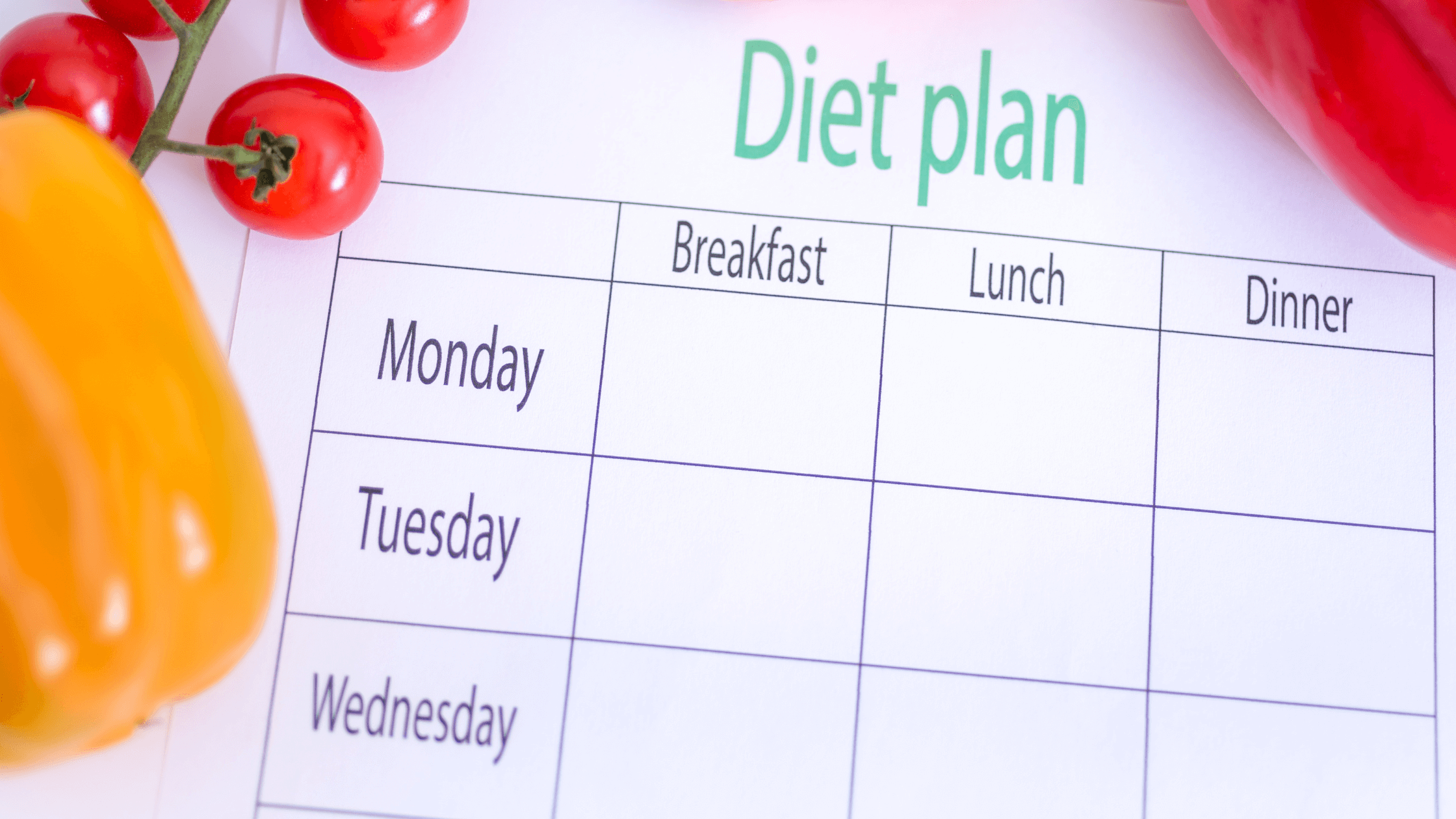
A Guide for Women Triggered by Diet Culture
This guide is for every woman who’s felt triggered by diet culture recently and are thinking about going back on a diet:
- The influencer flaunting their “healthy lifestyle transformation.”
- The gym windows showcasing “before and after” photos.
- Aunt Janice bragging about her miracle weight loss program.
If you’ve caught yourself thinking about going back on a diet, know this: your thoughts are valid and expected. You’re not broken or weak. You’re simply living in a world that constantly reinforces the idea that your body needs to change.
Let’s unpack these triggers together, so you can move past the noise of diet culture and reclaim your power.
Thinking about Going Back on a Diet: How To Coach Yourself When Triggered by Diet Culture
When you think about dieting, it’s often your brain’s way of seeking safety in a fatphobic society. The messaging around us equates thinness with happiness, success, and health. It’s no wonder you feel compelled to change your body—it’s what you’ve been taught for years.
But here’s the truth: a thought is not a fact.
That fleeting desire to lose weight? It’s not an absolute truth about your worth or what you need to feel fulfilled. It just reflects the conditioning you’ve absorbed from diet culture.
Step 1: Normalize Your Thoughts
The first step in navigating these feelings is normalization. Remind yourself that it’s normal to think about dieting in a world obsessed with thinness.
Try saying this to yourself:
“It makes total sense that I feel this way. I live in a fatphobic, diet-culture-obsessed society.”
Place your hand on your heart, breathe deeply, and repeat it with compassion. This simple act can help shift your mindset from self-blame to understanding.
Step 2: Challenge Your Beliefs
After normalizing your thoughts, ask yourself:
- What do I want to believe about my body, health, and happiness?
- Do I want to keep believing that weight loss is the key to my happiness or health?
Diet culture thrives on three major lies:
- Smaller bodies are better and more valuable.
- Health is only accessible at a smaller weight.
- Your worth depends on how hard you work to shrink your body.
Now, let’s rewrite the narrative. Consider these alternative beliefs:
- My body is a tool to experience life, not a sign of my worth as a woman.
- Health-promoting behaviors are accessible at any weight.
- My happiness comes from the way I think about myself, not my pant size.
Step 3: Choose Empowering Thoughts
Once you’ve identified the beliefs you want to hold, it’s time to train your brain to think them more often. This is where true transformation begins, but it requires practice and patience.
Here’s how:
- Write down your new beliefs.
- Place them somewhere visible—on your mirror, fridge, or phone wallpaper.
- Repeat them daily, even if they don’t feel true right away.
Over time, these new thoughts will become second nature, replacing the diet culture beliefs that once dominated your mind.
Why Going Back on a Diet Feels So Tempting
Dieting provides a sense of control, especially when life feels overwhelming. It offers a clear path with rules and promises of a better future. But here’s what diet culture doesn’t tell you:
- Diets fail 91-95% of the time.
- They create a cycle of weight loss and regain, leaving you feeling like the problem when the real issue is the unsustainable methods.
- Dieting harms your relationship with food, your body, and your mental health.
You’re not the problem. Diet culture is.
Step 4: Reflect on What You’re Truly Seeking
When you think about dieting, it’s rarely just about the weight. Ask yourself:
- What am I hoping to feel by losing weight?
- Do I want confidence, happiness, ease, or acceptance?
The good news? You don’t need to shrink your body to feel those things. Confidence and happiness are already within reach—you just need to shift the focus from external validation to internal growth.
Step 5: Break Free with Self-Compassion
Breaking free from diet culture is not a one-time decision. It’s an ongoing process of self-coaching and self-compassion. Here’s how to stay grounded when triggers arise:
- Acknowledge Your Triggers: Recognize when a comment, ad, or thought activates your desire to diet.
- Pause and Breathe: Create space between the trigger and your response.
- Respond with Kindness: Remind yourself that it’s normal to feel this way, but you have the power to choose a different path.
Thinking about Going Back on a Diet: What to Do Instead
Instead of focusing on weight loss, channel your energy into behaviors that genuinely improve your well-being.
1. Focus on Nourishment: Eat foods that satisfy and energize you, without labeling them as “good” or “bad.”
2. Move for Joy: Find activities that make you feel alive and connected to your body, rather than punishing workouts.
3. Prioritize Rest and Stress Management: Sleep and stress reduction are critical for physical and emotional health.
4. Celebrate Your Body: Practice gratitude for what your body allows you to do, rather than how it looks.
Remember: You Are Enough
When you feel the urge to go back on a diet, remind yourself:
- You don’t need to fix yourself.
- Your body is not a problem.
- Diet culture doesn’t get to define your worth.
Choosing to reject dieting is a radical act of self-love in a world that profits from your self-doubt. By reclaiming your thoughts, beliefs, and behaviors, you can liberate yourself from the endless cycle of dieting and finally live fully.
How We Can Help
You can access all of our services on our work with us page. We have a number of programs and service levels enabling us to serve most women:
Free Resources and Masterclasses: Get started and get to know us better!
Private coaching with Stephanie and her team Stephanie and her team of Certified Non-Diet Coaches are waiting to support you in a one-to-one setting with an individualized plan.
It’s Beyond The Food – Undiet Your Life group coaching program is for women to learn how to eat intuitively, become body neutral, and learn self-coaching at their own pace while being supported in a group setting by Stephanie and her team of Certified Non-Diet Coaches.
Non-Diet Coaching Certification for professionals ready to integrate the Going Beyond The Food Method™️ in their practice and for women wanting to become Certified Coach and build a business coaching other women beyond the food.
How to Say NO to New Year New You and What to Do Instead to Feel Better
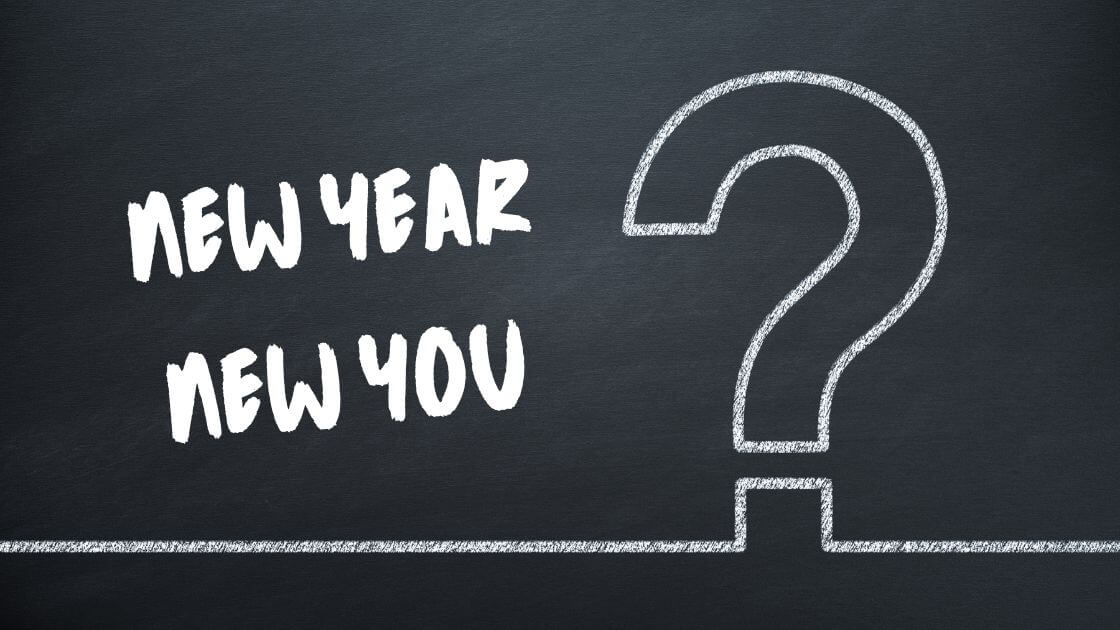
As the year comes to a close, the “New Year, New You” messaging emerges like clockwork, urging us to start over, fix ourselves, and chase unattainable ideals. But what if this year, instead of buying into diet culture’s manipulative narrative, we approached the New Year differently? Ready to learn how to say NO to new year new you narrative?
This guide will help you understand the roots of New Year’s resolutions, how diet culture has distorted them, and how to set empowering goals that support your well-being—without the baggage of dieting or body shame.
The History of New Year’s Resolutions
Setting intentions for the new year is an ancient practice. Four thousand years ago, early civilizations made promises to their gods, offering sacrifices in exchange for a fruitful year ahead. Organized religions later adopted similar traditions, with followers vowing to correct past mistakes and strive for better adherence to religious principles.
In today’s secular world, the “gods” have changed. Diet culture and the thin ideal have replaced spiritual guidance, convincing us that a smaller body is the key to happiness, success, and health. Instead of reflecting on meaningful growth, we’ve been conditioned to focus on shrinking ourselves as the ultimate resolution.
How to Say NO to New Year New You: How Diet Culture Hijacked the New Year
Diet culture preys on insecurities, turning the New Year into a season of self-criticism. It equates worth with physical appearance and health with thinness, pushing the narrative that “fixing” our bodies will fix our lives.
Think about the ads flooding your feed:
- Detoxes to “cleanse” the indulgences of the holiday season.
- Gym promotions promising a “new you.”
- Before-and-after photos celebrating dramatic weight loss.
These messages imply that who you are right now isn’t enough. They frame the New Year as a deadline for transformation, rather than an opportunity for authentic growth.
Rather listen to the audio version of this blog? We’ve got you…
Why We Keep Falling for It
Despite knowing diets don’t work long-term, many of us still set weight loss resolutions. Why? Because diet culture convinces us that failure is personal—not systemic.
When a diet fails, we’re told it’s due to a lack of willpower, not because the diet itself was unsustainable. This endless cycle of blame and guilt keeps us hooked, hoping that the next plan will finally work.
Breaking Free: How to Say NO to New Year New You
Rejecting the New Year, New You narrative isn’t about giving up on self-improvement—it’s about redefining what improvement looks like. Here’s how:
1. Understand What You’re Really Chasing
When you set a weight loss goal, what are you truly seeking? Confidence? Happiness? Better health?
Reframe It: Instead of focusing on a smaller body, focus on how you want to feel. For example, aim for more energy, better sleep, or less stress—none of which require dieting.
2. Separate Health from Weight
Health and weight are not the same. Research shows that behaviors like balanced nutrition, regular movement, and stress management have a greater impact on health than body size.
Reframe It: Set health goals that prioritize behaviors, not outcomes. For example:
- “I’ll add more vegetables to my meals” instead of “I’ll lose 10 pounds.”
- “I’ll take walks for mental clarity” instead of “I’ll burn calories.”
3. Question the “Fix Yourself” Mentality
Diet culture thrives on making you feel broken. But you’re not.
Reframe It: Shift your focus from fixing to creating. What can you build in your life that aligns with your values and brings joy?
4. Ditch All-or-Nothing Thinking
New Year’s resolutions often set us up for failure with extreme, unsustainable goals.
Reframe It: Embrace flexibility. Allow room for adjustments and celebrate small victories along the way.
5. Surround Yourself with Support
Who you follow and engage with shapes your mindset.
Reframe It: Curate your social media to include accounts that celebrate body diversity and reject diet culture. Connect with communities that support intuitive eating and self-compassion.
6. Celebrate Non-Scale Victories
Your worth isn’t defined by a number on the scale.
Reframe It: Recognize achievements that reflect personal growth, like improved energy, stronger relationships, or newfound hobbies.
7. Focus on What Brings Joy
Diet culture thrives on restriction, but joy is essential for a fulfilling life.
Reframe It: Ask yourself, “What lights me up?” Incorporate more of those activities into your daily routine, whether it’s dancing, painting, or spending time with loved ones.
8. Practice Self-Compassion
Self-improvement doesn’t have to be fueled by criticism.
Reframe It: Treat yourself with the same kindness you’d offer a friend. Acknowledge your progress and forgive setbacks.
What to Do Instead of Dieting
Now that you’ve said NO to New Year New You, what’s next? Here’s how to set meaningful, diet-free resolutions:
1. Reflect on Your Values: Identify what truly matters to you. Is it family, creativity, health, or adventure?
2. Set Intentions, Not Rules: Choose intentions that align with your values, like “prioritize rest” or “nurture my creativity.”
3. Break Goals into Steps: Focus on small, actionable changes. Instead of “be healthier,” try “drink more water” or “take deep breaths during stressful moments.”
4. Celebrate Progress: Track how you feel as you make changes. Progress is about growth, not perfection.
How to Say NO to New Year New You: A Radical Proposition
What if, instead of criticizing ourselves, we spent the year learning to believe in ourselves? Imagine redirecting the energy used to shrink your body toward building self-trust, confidence, and joy.
Here’s your challenge for the New Year: Stop measuring yourself against the impossible standards of diet culture. Start creating a life where you feel free, empowered, and unapologetically yourself.
This year, say NO to New Year New You—and YES to the real you.
How We Can Help You Say NO to New Year New You
You can access all of our services on our work with us page. We have a number of programs and service levels enabling us to serve most women:
Free Resources and Masterclasses: Get started and get to know us better!
Private coaching with Stephanie and her team Stephanie and her team of Certified Non-Diet Coaches are waiting to support you in a one-to-one setting with an individualized plan.
It’s Beyond The Food – Undiet Your Life group coaching program is for women to learn how to eat intuitively, become body neutral, and learn self-coaching at their own pace while being supported in a group setting by Stephanie and her team of Certified Non-Diet Coaches.
Non-Diet Coaching Certification for professionals ready to integrate the Going Beyond The Food Method™️ in their practice and for women wanting to become Certified Coach and build a business coaching other women beyond the food.
Health Goals Versus Weight Loss Goals: Why It’s Not the Same
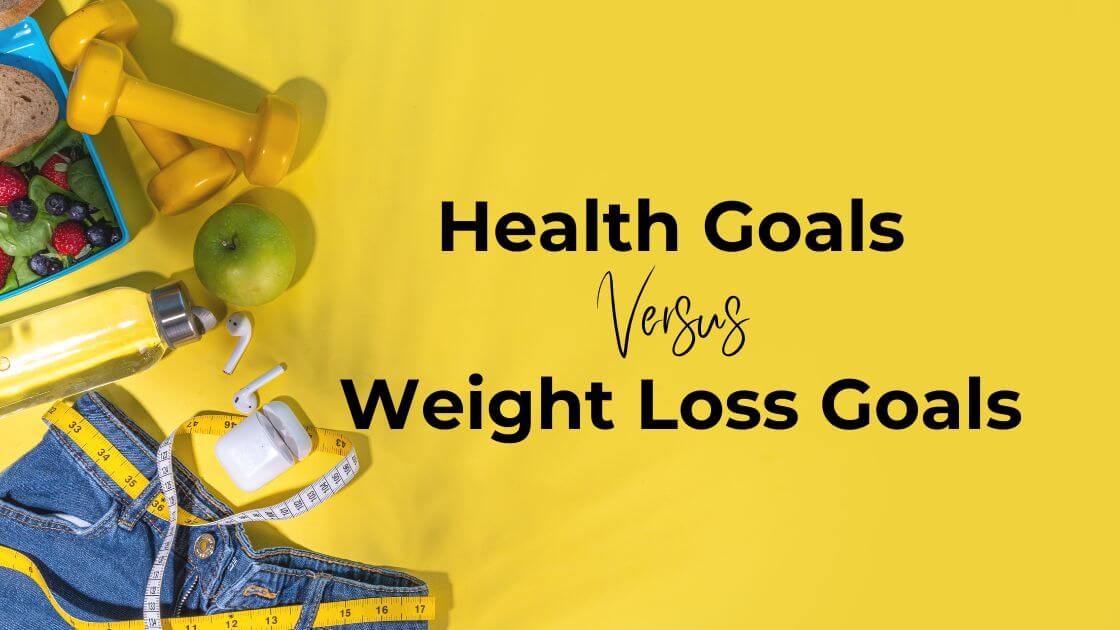
As the end of the year approaches, many of us reflect on the past and set goals for the future. Unfortunately, in a society dominated by diet culture, this time of self-reflection often becomes a season of weight loss resolutions. Ads flood our screens with promises of quick fixes, “detoxes,” and ways to shed holiday pounds. But are weight loss goals the same as health goals? Spoiler: They’re not.
Let’s explore why this distinction matters and how to pursue sustainable health goals that empower you for life.
Health Goals Versus Weight Loss Goals: The Diet Culture Trap
In a world steeped in diet culture, weight loss is often presented as the ultimate solution to health concerns. Feeling tired? Lose weight. Joint pain? Drop pounds. High cholesterol? Slim down.
But weight loss as a universal remedy is misleading and harmful. The association between weight and health is far more complex than what mainstream messaging suggests. For decades, we’ve been conditioned to believe that thinness equals health, happiness, and worth. However, this belief isn’t rooted in science—it’s rooted in societal biases like sexism, racism, and fatphobia.
The Historical Roots of Weight Loss Obsession
Up until the early 20th century, weight loss was not linked to health by medical professionals. The cultural obsession with thinness began in the post-World War era, when societal beauty standards shifted. As Sabrina Strings, author of Fearing the Black Body, explains, fatphobia is tied to white supremacy and religious morality. Thinness became a marker of racial, moral, and national superiority, while fatness was stigmatized as undesirable and sinful.
Patriarchy also fueled this obsession. During times when women fought for more power—like the right to vote or equal pay—cultural narratives about beauty intensified. Thinness became a tool of oppression, keeping women preoccupied with their bodies instead of pursuing autonomy and influence.
As Naomi Wolf writes in The Beauty Myth:
“A cultural fixation on female thinness is not an obsession about female beauty but an obsession about female obedience.”
Rather listen to the audio version of this blog? We’ve got you…
Why Wanting to Lose Weight Feels Normal
If you’ve ever set a weight loss goal, you’re not alone. It’s natural to desire weight loss in a world that constantly reinforces this message. Diet culture surrounds us, from the media to healthcare, shaping our beliefs and behaviors.
When clients like Julie (a fictional example) come to me wanting to lose weight, I validate their feelings. Their desires are a logical response to a lifetime of societal conditioning. But when we dig deeper, the reasons for their weight loss goals often center on improving their health, comfort, or quality of life—goals that don’t actually require weight loss.
Health Goals versus Weight Loss Goals
Here’s the critical distinction:
- Weight loss goals focus on changing your body size.
- Health goals focus on improving how you feel and function.
These two are not the same. In fact, pursuing weight loss can undermine genuine health goals by promoting restrictive diets, disordered eating, and a negative relationship with your body.
The assumption that weight directly correlates with health is flawed. Research consistently shows that health behaviors—like eating nutritious foods, moving your body, and managing stress—have a far greater impact on health than weight alone.
For example, a 2016 study published in the International Journal of Obesity found that nearly 47% of people classified as overweight and 29% of those classified as obese were metabolically healthy. Meanwhile, 31% of those with a “normal” BMI were metabolically unhealthy. This highlights that weight is not a definitive indicator of health.
Redefining Health: A Holistic Approach
Health isn’t just physical. The World Health Organization defines health as:
“A state of complete physical, mental, and social well-being, not merely the absence of disease or infirmity.”
True health encompasses:
1. Physical well-being: Feeling energized and comfortable in your body.
2. Emotional well-being: Managing stress, emotions, and mental health.
3. Social well-being: Maintaining fulfilling relationships and a sense of community.
How to Pursue Health Without Diet Culture
1. Set Non-Weight-Related Goals
Focus on goals like improving sleep quality, increasing energy, or building strength. These are sustainable and have a direct impact on well-being.
2. Adopt a Weight-Neutral Approach
Embrace the idea that health is not determined by the number on a scale. A weight-neutral approach emphasizes behaviors over outcomes.
3. Prioritize Self-Care
Invest in habits that nourish your body and mind, like balanced meals, enjoyable movement, and mindfulness practices.
4. Reject All-or-Nothing Thinking
Health isn’t about perfection. Small, consistent changes matter more than extreme overhauls.
5. Educate Yourself About Diet Culture
Learn how diet culture manipulates societal norms and reinforces harmful ideals. Knowledge is power.
6. Find Joy in Movement
Exercise should feel good, not like a punishment. Experiment with activities that bring you joy, whether it’s dancing, yoga, or hiking.
7. Manage Stress and Rest
Chronic stress takes a toll on health. Incorporate relaxation techniques and prioritize sufficient sleep.
8. Surround Yourself with Support
Seek out communities that celebrate body diversity and reject diet culture. Curate your social media to reflect these values.
9. Develop Self-Compassion
Be kind to yourself as you unlearn harmful narratives. Accept that your journey will involve ups and downs.
10. Celebrate Non-Scale Victories
Track progress in ways that reflect your overall well-being, like improved stamina, better mood, or reduced stress levels.
Health Goals Versus Weight Loss Goals: The Empowering Choice
Silencing the noise of diet culture and choosing health goals over weight loss goals is an act of self-empowerment. It’s about shifting the focus from shrinking your body to living your fullest, healthiest life.
Remember, your worth is not determined by your weight. By prioritizing sustainable health goals, you can nurture a positive relationship with your body and create a life that supports your well-being in every sense.
Your body, your choice. Choose health, not weight loss.
Need help pursuing your health goals?
You can access all of our services on our work with us page. We have a number of programs and service levels enabling us to serve most women:
Free Resources and Masterclasses: Get started and get to know us better!
Private coaching with Stephanie and her team Stephanie and her team of Certified Non-Diet Coaches are waiting to support you in a one-to-one setting with an individualized plan.
It’s Beyond The Food – Undiet Your Life group coaching program is for women to learn how to eat intuitively, become body neutral, and learn self-coaching at their own pace while being supported in a group setting by Stephanie and her team of Certified Non-Diet Coaches.
Non-Diet Coaching Certification for professionals ready to integrate the Going Beyond The Food Method™️ in their practice and for women wanting to become Certified Coach and build a business coaching other women beyond the food.
10 Tips for Silencing the Weight Loss Message During the Holidays
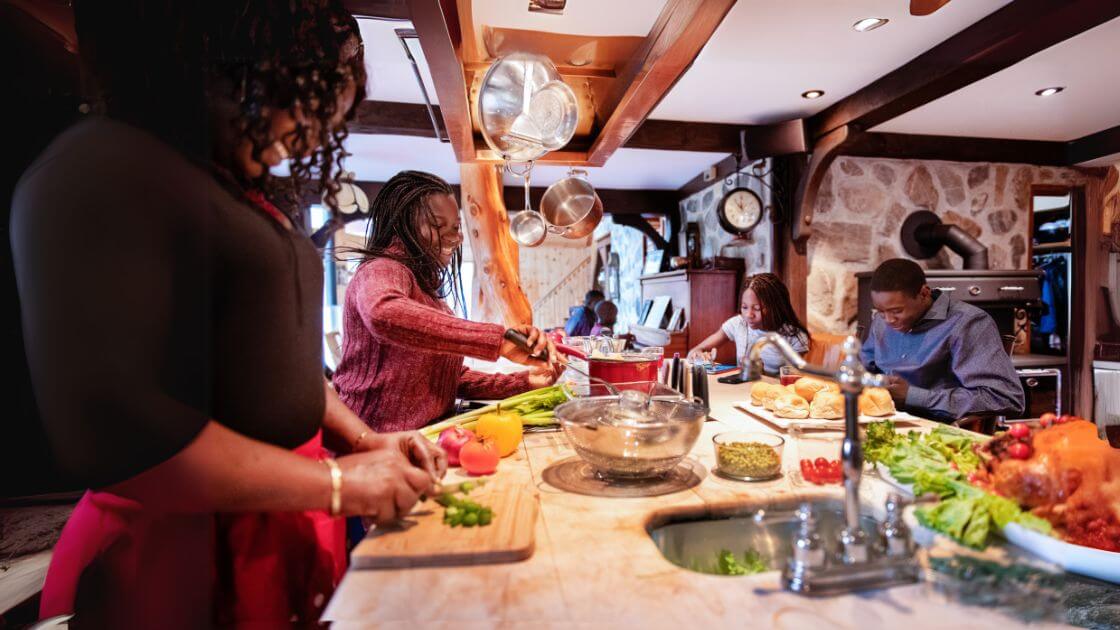
The holidays should be a time of joy, connection, and celebration, but for many, it’s also when the weight loss industry ramps up its messaging. From detox ads to fitness challenges disguised as New Year’s resolutions, these messages can overshadow the true spirit of the season, leaving you feeling unworthy or pressured to conform.
But you don’t have to listen. Silencing the weight loss message is about reclaiming your holiday experience and prioritizing your mental and emotional well-being over the noise of diet culture.
Here are 10 empowering tips to help you navigate the holidays while tuning out harmful weight loss messages.
1. Anticipate and Prepare for Weight Loss Messaging
Weight loss ads and campaigns flood the holiday season. From social media posts to commercials, these messages are everywhere, aiming to profit from your insecurities.
Tip: Anticipate this surge and decide how to respond. Mute accounts, skip triggering conversations, or prepare mantras like, “This message doesn’t define me.”
2. Understand the Systemic Fear of Fatness
The weight loss industry thrives on the fear of fatness, a belief ingrained in us by societal norms. Recognizing this fear as a learned bias is the first step toward dismantling its power.
Tip: Reflect on how societal pressures have shaped your views about weight and body image. Acknowledge that these fears are not your fault.
3. Follow the Money Trail
The weight loss, beauty, and wellness industries profit billions annually by pushing these messages. Remember, they aren’t invested in your health or happiness—they’re invested in their bottom line.
Tip: When you see a weight loss ad, remind yourself it’s designed to sell, not serve. This awareness can help you detach from its emotional impact.
4. Acknowledge Fatphobia as a Systemic Issue
Fatphobia isn’t just a personal issue—it’s systemic. It’s woven into media, healthcare, and social norms, perpetuating the belief that thinner is better.
Tip: Educate yourself on systemic fatphobia. Understanding its roots can empower you to resist its influence in your own life.
5. Learn the Language of Diet Culture
Silencing the weight loss message requires understanding the broader system of diet culture. This culture places value on thinness, equating it with health and morality, and keeps people preoccupied with their bodies.
Tip: Dive into resources that define and challenge diet culture. Learning its patterns can help you recognize and reject its influence.
Rather listen to the audio version of this blog? We’ve got you…
6. Be Compassionate with Yourself
It’s natural to feel the urge to lose weight in a world obsessed with thinness. However, acting on these feelings isn’t necessary.
Tip: Practice self-compassion. Acknowledge these feelings without judgment and remind yourself that your worth is not tied to your weight.
7. Curate Your Social Media Feed
The messages you surround yourself with matter. Social media can be a source of empowerment or a breeding ground for comparison and insecurity.
Tip: Unfollow accounts that promote weight loss or unrealistic beauty standards. Instead, follow creators who celebrate body diversity and self-acceptance.
8. Remember: You Don’t Owe Anyone an Explanation
Your body and choices are yours alone. You’re not obligated to explain your appearance, eating habits, or health goals to anyone.
Tip: Use affirmations like, “My body, my rules,” to reinforce your autonomy. Let go of the need to please others with your personal decisions.
9. Set Intentions from a Place of Love
When setting goals or intentions for the New Year, let them come from a place of love and self-respect, not fear or self-criticism.
Tip: Ask yourself, “What would I pursue if I believed I was already enough?” Use this as your guiding principle for decision-making.
10. Use Triggers as Opportunities for Growth
Avoiding weight loss messaging entirely isn’t realistic, but you can use these moments as chances to reflect and heal.
Tip: When triggered, pause and ask yourself, “What belief is being challenged here?” Use the experience to identify areas where you can grow and strengthen your mindset.
Silencing the Weight Loss Message: The Path to True Freedom
Silencing the weight loss message during the holidays isn’t just about avoiding negativity—it’s about embracing joy, connection, and self-worth. By following these tips, you can create a season that prioritizes your well-being over societal pressures.
Remember, the holidays are a time to celebrate the fullness of life, not shrink yourself to fit someone else’s ideals. This year, tune out the noise, choose self-love, and reclaim the holiday season for what it truly is: a time to cherish yourself and your loved ones.
Need help silencing the weight loss message to break free from diet culture?
You can access all of our services on our work with us page. We have a number of programs and service levels enabling us to serve most women:
Free Resources and Masterclasses: Get started and get to know us better!
Private coaching with Stephanie and her team Stephanie and her team of Certified Non-Diet Coaches are waiting to support you in a one-to-one setting with an individualized plan.
It’s Beyond The Food – Undiet Your Life group coaching program is for women to learn how to eat intuitively, become body neutral, and learn self-coaching at their own pace while being supported in a group setting by Stephanie and her team of Certified Non-Diet Coaches.
Non-Diet Coaching Certification for professionals ready to integrate the Going Beyond The Food Method™️ in their practice and for women wanting to become Certified Coach and build a business coaching other women beyond the food.
Why You Shouldn’t “Indulge” During the Holiday: ‘tis the season to smash down diet culture
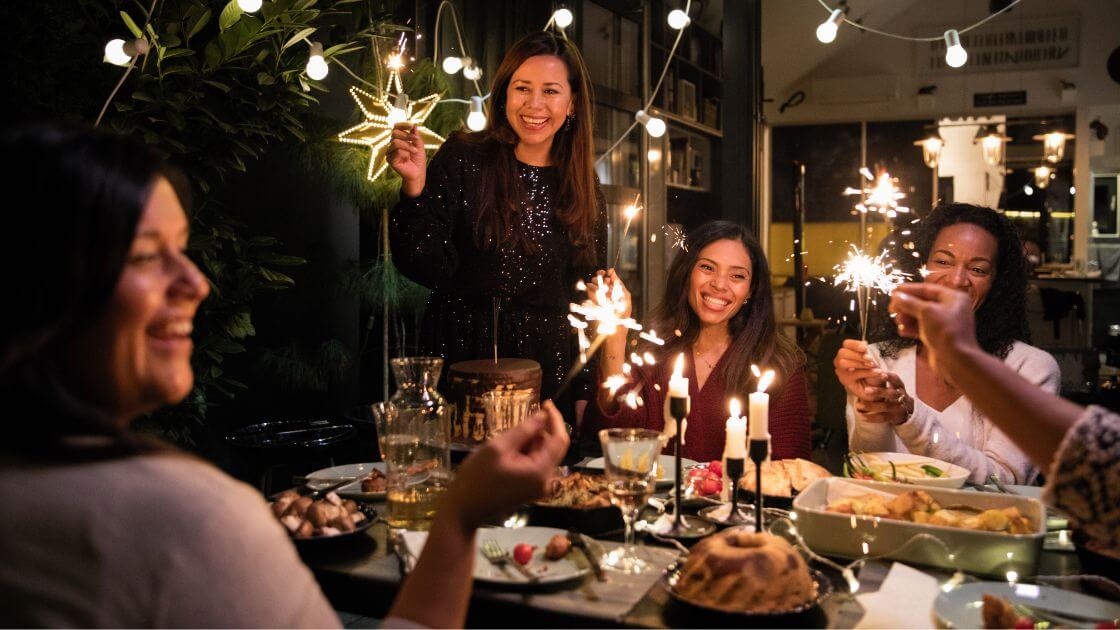
The holiday season is a time of celebration, reflection, and joy. Yet, for many, it also comes laden with the weight of diet culture and its insidious grip. From the portrayal of women in holiday movies to societal expectations about indulgence and self-restraint, the season has long been entwined with patriarchal systems and diet culture narratives. This article explores the roots of these traditions and offers strategies to reclaim your holiday experience, diet-culture free.
The Patriarchal Roots of the Holidays
The modern holiday season is a blend of ancient traditions, Christianity, and consumerism. Initially tied to winter solstice celebrations, the holidays were historically about community and feasting. As Christianity gained prominence, religious elements merged with these practices. By the 19th century, Christmas had become a commercial enterprise, shifting focus from spirituality to consumption.
Patriarchy has played a key role in shaping holiday norms. From the gendered division of labor in holiday preparations to the expectation that women must create perfect celebrations, patriarchal systems have normalized the emotional and physical labor of the season for women. This dynamic also extends to diet culture, a tool of patriarchy that keeps women focused on controlling their bodies rather than asserting their power.
How Diet Culture Thrives During the Holidays
Diet culture is particularly potent during the holidays, exploiting themes of indulgence, guilt, and control. The narrative often goes like this:
- Indulge now, restrict later: The idea of holiday feasting is weaponized with the promise of New Year’s resolutions to “atone” for excess.
- Moralizing food choices: Phrases like “cheat day” or “being good” reinforce the idea that eating certain foods determines personal value.
- Pressure to prepare for the New Year: The “New Year, New You” rhetoric capitalizes on holiday guilt, selling solutions to problems diet culture itself created.
These narratives are everywhere—in movies, ads, and even casual conversations. Women’s magazines and online content emphasize self-restraint, while men’s content often highlights pleasure and relaxation, reflecting a stark double standard.
Rather listen to the audio version of this blog? We’ve got you…
How Patriarchy Shapes Holiday Diet Culture
The portrayal of women in holiday culture often reinforces diet culture and patriarchal norms. Consider these examples:
- Holiday Movies: Women are typically shown as self-sacrificing, managing endless holiday tasks while maintaining a “perfect” appearance. Their worth is tied to how well they fulfill these roles.
- Body Image in Media: Holiday visuals are dominated by thin, conventionally attractive characters, perpetuating unrealistic beauty standards.
- Food Messaging: Women are encouraged to “indulge” cautiously, while men are rarely subjected to such scrutiny.
These dynamics keep women in cycles of striving, guilt, and self-denial, making it harder to break free from these oppressive systems.
Breaking Free: How to Navigate the Holidays Diet-Culture Free
Awareness is the first step to change. Here’s how to navigate the season free from the constraints of diet culture:
1. Redefine Indulgence
The word “indulge” is often loaded with guilt and moral judgment. Instead, embrace the idea that food is a source of nourishment and joy. Remind yourself that no food is inherently “bad” or “good.” All foods fit into a balanced, intuitive approach to eating.
Action Step: Replace “I’m indulging” with “I’m enjoying.” Focus on the experience of savoring food without attaching guilt to it.
2. Shift the Focus from Food to Connection
The holidays are about more than what’s on the table. Reframe your celebrations to prioritize connection, relaxation, and reflection over food and appearance.
Action Step: Plan activities that emphasize bonding, such as games, outdoor walks, or sharing gratitude with loved ones.
3. Challenge Media Messages
Be critical of the holiday media you consume. Notice how women and men are portrayed differently and question the messages you’re absorbing.
Action Step: Discuss these observations with friends or family to raise awareness about these patterns. For example, point out gendered stereotypes in holiday movies during family movie nights.
4. Say No to “New Year, New You” Pressure
The New Year often brings a surge of dieting ads and fitness challenges. Reject the idea that your worth is tied to transforming your body.
Action Step: Set intentions that prioritize self-care and joy over physical appearance. For example, focus on learning a new skill or dedicating time to a hobby.
5. Reclaim Your Holiday Traditions
Patriarchy and diet culture have long dictated what the holidays “should” look like. It’s time to redefine these traditions on your terms.
Action Step:
- Simplify holiday tasks. Let go of unnecessary obligations that drain your energy.
- Celebrate in ways that feel authentic to you, whether that means skipping the turkey or enjoying a favorite family dish without guilt.
Cultivating Awareness and Passing It On: How to Navigate the Holidays Diet-Culture Free
Breaking free from diet culture during the holidays is not just an act of self-care but also a way to challenge systemic oppression. By refusing to participate in these harmful narratives, you pave the way for others—especially children—to experience the holidays without internalized shame or guilt.
When you model an intuitive, guilt-free approach to food and traditions, you contribute to a cultural shift that prioritizes well-being over unrealistic ideals.
Final Thoughts: A Season of Liberation
Navigating the holidays without diet culture is a radical act of self-love and resistance. By understanding the roots of holiday traditions and recognizing the systems at play, you can reclaim the joy and meaning of the season.
Let this be the year you celebrate on your terms—free from guilt, restriction, and the weight of oppressive narratives. Because the true spirit of the holidays lies in connection, love, and the freedom to be unapologetically yourself.
Want to Learn More How to Navigate the Holidays Diet-Culture-Free?
You can access all of our services on our work with us page. We have a number of programs and service levels enabling us to serve most women:
Free Resources and Masterclasses: Get started and get to know us better!
Private coaching with Stephanie and her team Stephanie and her team of Certified Non-Diet Coaches are waiting to support you in a one-to-one setting with an individualized plan.
It’s Beyond The Food – Undiet Your Life group coaching program is for women to learn how to eat intuitively, become body neutral, and learn self-coaching at their own pace while being supported in a group setting by Stephanie and her team of Certified Non-Diet Coaches.
Non-Diet Coaching Certification for professionals ready to integrate the Going Beyond The Food Method™️ in their practice and for women wanting to become Certified Coach and build a business coaching other women beyond the food.
Navigating Diet Talks and Comments about Weight & Body
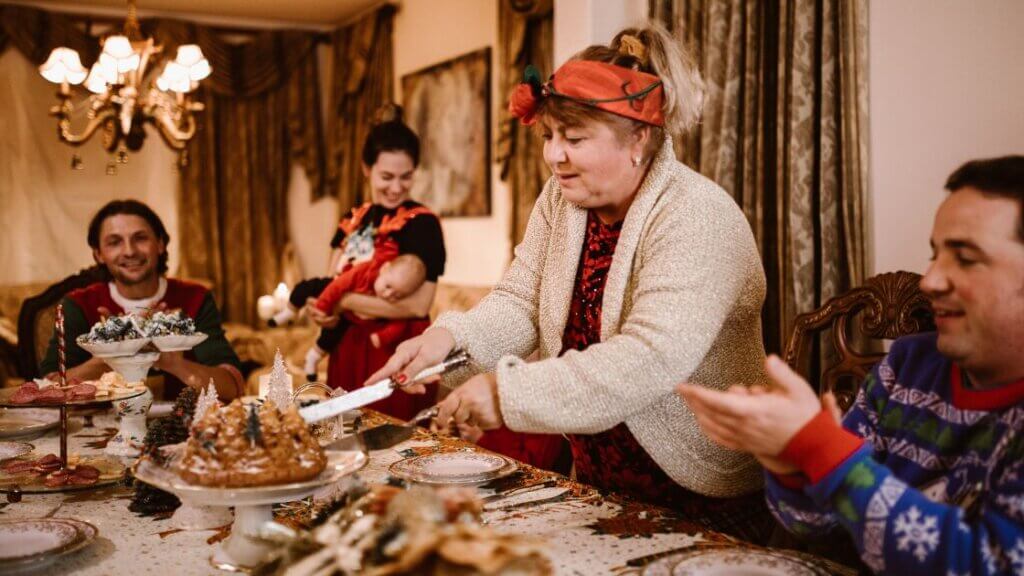
A Guide for Women
In a world preoccupied with appearance and weight, navigating diet culture and unsolicited body commentary can be challenging. Many women face these conversations in social, family, and professional settings, making it essential to develop strategies to maintain self-confidence and emotional well-being. This guide offers insights into understanding diet culture, managing emotional triggers, and setting boundaries to foster empowerment.
Understanding the Context of Diet Talks and Body Comments
The Pervasiveness of Diet Culture
Diet culture is a societal framework that equates thinness with health, morality, and success. This narrative often influences conversations about weight, food, and bodies, leaving many unaware of its insidious effects. Women, particularly, are often targeted, expected to conform to unrealistic body standards shaped by patriarchal norms.
Recognizing the systemic nature of diet culture can help shift perspectives. The comments you hear or the comparisons you make are products of a deeply ingrained belief system, not personal truths.
Rather listen to the audio version of this blog? We’ve got you…
Preparing for Diet and Body Discussions
Anticipate the Conversations
Diet-related discussions tend to surface during holidays, family gatherings, and even casual meet-ups. Rather than being caught off guard, anticipate these topics and prepare mentally. Understand that people may not have the same awareness of diet culture as you do, and many speak from a place of conformity rather than intent to harm.
Mindset Shift: View these interactions as predictable events rather than personal attacks. This reframing can lessen their emotional impact.
Managing Emotional Reactions to Body Comments
Recognizing the Source of Your Emotions
Emotional responses to body-related comments often stem from internalized beliefs rather than the words themselves. For instance, a remark about weight gain might trigger self-doubt because it aligns with existing insecurities. However, these emotions are self-generated by how we interpret others’ words.
Actionable Step: Pause when faced with triggering comments. Ask yourself, “What belief am I holding onto that makes this comment hurtful?” This reflection redirects focus to your own empowerment.
Cultivating Compassion for Yourself and Others
For Yourself
Acknowledge that reacting emotionally to body commentary is a conditioned response shaped by years of exposure to diet culture. Practice self-compassion by reminding yourself that these feelings are normal but can be reprogrammed over time.
intentional Thought: “I am more than my body. My worth is not defined by societal standards.”
For Others
Understand that those engaging in diet talk or commenting on bodies often operate from their own insecurities and limited understanding. Extend compassion, knowing they might not yet realize the harm of their words.
Establishing and Maintaining Boundaries
Internal Boundaries
Internal boundaries involve controlling your reactions and emotions. When encountering diet talk, remind yourself that these opinions are not reflections of your value. Mentally disengage from conversations that don’t align with your beliefs.
External Boundaries
External boundaries require clear communication. Examples include:
- “I prefer not to discuss my body or weight.”
- “Let’s talk about something other than dieting or weight loss.”
- “I am focusing on a healthy relationship with food, and diet culture doesn’t align with that.”
If a conversation continues to infringe upon your comfort, physically remove yourself from the situation when possible.
Reprogramming Internal Beliefs for Long-Term Resilience
The Role of Self-Coaching
Self-coaching is a powerful tool to reshape the beliefs ingrained by diet culture. Start by identifying thoughts that no longer serve you. For example:
- Replace “I need to lose weight to be healthy” with “Health is about habits, not size.”
- Replace “She looks better than me” with “We all have unique bodies that serve us differently.”
Practicing these shifts regularly can rewire thought patterns, reducing the impact of external comments.
Practical Steps for Everyday Situations
- Create Intentional Thoughts: Before attending gatherings, prepare affirming thoughts. For instance:
- “Comments about my body reflect their beliefs, not my worth.”
- “My body is not a topic of public discussion.”
- Develop a Go-To Response: Having a polite yet firm reply ready can defuse awkward moments. For example:
- “Thank you for your concern, but I’m focusing on a holistic approach to my health.”
- Engage in Supportive Communities: Surround yourself with people who respect and celebrate bodies of all shapes and sizes. Online groups or in-person communities can offer encouragement and validation.
The Power of Compassionate Boundaries
Setting boundaries isn’t about controlling others; it’s about protecting your energy and emotional well-being. While some may find this assertiveness surprising, over time, it fosters healthier relationships where mutual respect is prioritized.
Remember: Setting boundaries is a form of self-respect and empowerment.
Final Thoughts: Taking Responsibility for Your Journey
Ultimately, the power to navigate diet talks and body comments lies within. You cannot change others, but you can control how you respond. By shifting your beliefs, preparing for interactions, and setting compassionate boundaries, you reclaim your narrative and define your worth independently of societal standards.
As you embark on this journey, be patient and kind to yourself. Transforming your mindset takes time, but the freedom it brings is invaluable. You are more than your body. Embrace the full, authentic version of yourself.
Ready to Explore this Further?
You can access all of our services on our work with us page. We have a number of programs and service levels enabling us to serve most women:
Free Resources and Masterclasses: Get started and get to know us better!
Private coaching with Stephanie and her team Stephanie and her team of Certified Non-Diet Coaches are waiting to support you in a one-to-one setting with an individualized plan.
It’s Beyond The Food – Undiet Your Life group coaching program is for women to learn how to eat intuitively, become body neutral, and learn self-coaching at their own pace while being supported in a group setting by Stephanie and her team of Certified Non-Diet Coaches.
Non-Diet Coaching Certification for professionals ready to integrate the Going Beyond The Food Method™️ in their practice and for women wanting to become Certified Coach and build a business coaching other women beyond the food.
Weight Neutral Health Motivation: How to Create Motivation When You Feel Unmotivated

Redefining Motivation: A Weight-Neutral Approach to Personal Growth
Have you ever found yourself stuck, feeling completely unmotivated and unable to move forward? As a weight-neutral health coach, I’ve worked with countless clients who struggle with motivation across various aspects of their lives. Today, I’m sharing a transformative perspective that can help you break free from motivational paralysis.
The Biggest Misconception About Motivation
Most people believe motivation is something that happens to you—that you’re either naturally motivated or you’re not. This couldn’t be further from the truth. Motivation is an emotion, just like joy, anger, or pleasure. It’s not a mysterious force that randomly appears; it’s a state you actively create through your thoughts and perceptions.
Why We Sabotage Our Own Motivation
Interestingly, what we perceive as a lack of motivation is often a sophisticated self-protection mechanism. When we feel unmotivated, we’re typically:
– Avoiding perceived danger
– Protecting ourselves from potential failure
– Responding to deep-seated fears of judgment or criticism
Weight-Neutral Health Coaching Motivation: Uncovering the Roots of Unmotivation
Let me share a recent coaching experience that illustrates this perfectly. I worked with a client struggling to submit an important assignment. On the surface, it looked like procrastination. But when we dug deeper, we discovered her real challenge: paralyzing fear of failure.
Redefining Failure: A Powerful Mindset Shift
Her family history had taught her that anything less than being in the top 10% was considered a failure—with punishment attached. As an adult, she was still operating from this limiting belief. Together, we reframed failure as something entirely different: an opportunity to learn and grow.
How to Create Motivation: A Step-by-Step Approach
Creating genuine motivation requires honest self-reflection. Here’s my proven strategy:
1. Identify Your Thoughts: Grab a pen and paper. Write down your genuine thoughts about the area where you’re struggling with motivation.
2. Challenge Your Beliefs: For each thought, ask yourself:
– Is this an absolute fact?
– Where did this belief come from?
– Is there another way to interpret this situation?
3. Redefine Your Narrative: Create a new, empowering definition that removes the emotional charge of “failure” or “not good enough.”
Rather watch the video version of this blog? Check out Stephanie’s Instagram live here.
Weight-Neutral Health Coaching Motivation: Real-World Motivation Transformation
In my client’s case, redefining failure from a catastrophic event to a learning opportunity completely changed her approach. Suddenly, submitting the assignment became exciting rather than terrifying.
Your Motivation Toolkit
– Recognize motivation as an emotion you control
– Challenge your existing beliefs
– Create a compassionate, growth-oriented narrative
– View challenges as opportunities for learning
The Courage to Change Your Perspective
Creating motivation takes genuine courage. It means confronting uncomfortable thoughts and choosing a different path. But the reward is immense: you’ll unlock potential you never knew you had.
Final Thoughts
Motivation isn’t something that happens to you—it’s something you create. By understanding your thoughts, challenging your beliefs, and reframing your experiences, you can generate motivation in any area of your life.
Remember, you have the power to shift your perspective and create the motivation you desire.
Need Help with Creating Motivation?
You can access all of our services on our work with us page. We have a number of programs and service levels enabling us to serve most women:
Free Resources and Masterclasses: Get started and get to know us better!
Private coaching with Stephanie and her team Stephanie and her team of Certified Non-Diet Coaches are waiting to support you in a one-to-one setting with an individualized plan.
It’s Beyond The Food – Undiet Your Life group coaching program is for women to learn how to eat intuitively, become body neutral, and learn self-coaching at their own pace while being supported in a group setting by Stephanie and her team of Certified Non-Diet Coaches.
Non-Diet Coaching Certification for professionals ready to integrate the Going Beyond The Food Method™️ in their practice and for women wanting to become Certified Coach and build a business coaching other women beyond the food.
Healthism: The Desire to Be Healthy Gone Wrong
Healthism: A Guide for Women
Health is undeniably important for overall well-being, but when the pursuit of health takes on an obsessive, moral, or judgmental tone, it can transform into something more harmful than helpful—this is what we call healthism. Especially for women, the pressure to embody an ideal of perfect health often becomes entangled with societal expectations, personal worth, and even consumer culture. This guide aims to unpack healthism, its impact, and how to recognize when your desire to be healthy has crossed a line.
What is Healthism?
Healthism is a belief system that places disproportionate value on individual health and views it as the ultimate measure of personal worth. In essence, it equates being healthy with being virtuous. Much like diet culture, which idealizes thinness, healthism idealizes optimal health and often disregards the societal, environmental, and genetic factors that influence it.
Key tenets of healthism include:
- Health is entirely within individual control.
- Health is a moral obligation.
- Those who are healthy are perceived as superior to those who are not.
While prioritizing health seems positive on the surface, the ideology of healthism ignores the nuances of health, such as its natural fluctuations and the myriad external influences that are beyond personal control. For women, this is compounded by societal pressures to “do it all”—to be the ideal partner, parent, and professional while also being flawlessly healthy.
How Healthism Manifests in Women’s Lives
The societal push for women to prioritize health often begins with subtle messaging, such as:
- Ads promoting “clean eating” or “wellness routines.”
- Social media influencers showcasing unattainable standards of health.
- Advice framing health behaviors as moral choices (e.g., “good” vs. “bad” foods).
Over time, these messages can lead to unhealthy behaviors disguised as wellness, including:
- Over-reliance on supplements or detoxes: Women may feel compelled to spend exorbitantly on wellness products that promise perfection.
- Perfectionism in diet and exercise: Strict regimens with no room for flexibility can result in burnout or disordered eating patterns.
- Judging self-worth by health status: Women may feel inadequate or guilty for experiencing normal health fluctuations like menopause or illness.
For example, a woman going through menopause might believe her symptoms signify a failure to prepare her body adequately. This not only stigmatizes natural health transitions but also fosters feelings of guilt and inadequacy.
Rather listen the audio version of this blog? We’ve got you…
We also have a version of this podcast for health professional
The Link Between Healthism and Self-Worth
One of the most damaging aspects of healthism is how it ties health to self-worth. Many women internalize the belief that they must be healthy to be valuable. This can manifest as:
1. Internalized Shame: Feeling “less than” because of perceived health shortcomings.
2. Constant Anxiety: Obsessing over health choices and fearing judgment from others.
3. Never-Ending Pursuit: Chasing an ideal of health that is both unrealistic and ever-changing.
This fixation often leads to a cycle of striving and failure. When health is positioned as a moral responsibility, any deviation can feel like a personal shortcoming, triggering a fight-or-flight response to “regain” worth.
Recognizing Problematic Patterns in Your Health Journey
How can you tell if your pursuit of health has become problematic? Reflect on the following questions:
1. Do you feel guilty when you deviate from your health routine?
2. Are you spending excessive time or money chasing health ideals?
3. Do you tie your self-worth to your ability to follow strict health rules?
4. Are you ignoring external factors (like genetics, stress, or life circumstances) in your assessment of your health?
5. Do you delay happiness or self-acceptance until you achieve “perfect health”?
If you find yourself answering “yes” to many of these questions, it may be time to reassess your relationship with health.
Shifting Perspectives: A Balanced Approach to Health
Recognizing and addressing healthism requires a shift in mindset. Here are some steps to cultivate a healthier relationship with health:
1. Acknowledge Health as a Spectrum
Health is not binary—it is not something you either “have” or “lack.” It is a dynamic and multifaceted aspect of life that fluctuates due to factors both within and beyond your control.
2. Separate Health from Self-Worth
Your worth as a person is not determined by your health status. Practice self-compassion and recognize that being human involves imperfections, including health challenges.
3. Reclaim Autonomy in Health Choices
Shift from “I have to” to “I choose to.” Decide which health practices genuinely enhance your life rather than adhering to rigid rules imposed by societal pressures.
4. Challenge the Narrative of Personal Responsibility
Understand that you control only a small portion of the factors influencing your health. Research shows that external determinants like socioeconomic status, environment, and genetics play a far more significant role than individual choices.
5. Focus on Enjoyment, Not Obligation
Instead of forcing yourself into a strict health regime, explore activities and foods you genuinely enjoy. This reframes health as a source of pleasure rather than pressure.
Moving Forward: The Bright Side of Wanting to Be Healthy
When approached from a place of self-love rather than fear or obligation, the pursuit of health can be empowering. By redefining health as a personal, flexible, and nonjudgmental practice, women can liberate themselves from the oppressive grip of healthism.
Imagine exercising not because you feel you must, but because your body craves movement. Or choosing foods based on satisfaction and nourishment rather than societal labels of “good” or “bad.” This shift fosters a sense of autonomy and well-being without the weight of perfectionism.
Final Thoughts: Liberating Yourself from Healthism
Healthism may present itself as a pursuit of wellness, but its darker side often brings stress, guilt, and dissatisfaction. For women, disentangling self-worth from health is not just a personal journey but also an act of defiance against societal norms that impose unattainable standards.
By recognizing the signs of healthism and adopting a balanced approach to health, you can reclaim your time, energy, and joy. Remember, your value is not determined by your health status—you are inherently worthy, just as you are.
Want to learn more about redefining health and cultivating self-compassion?
You can access all of our services on our work with us page. We have a number of programs and service levels enabling us to serve most women:
Free Resources and Masterclasses: Get started and get to know us better!
Private coaching with Stephanie and her team Stephanie and her team of Certified Non-Diet Coaches are waiting to support you in a one-to-one setting with an individualized plan.
It’s Beyond The Food – Undiet Your Life group coaching program is for women to learn how to eat intuitively, become body neutral, and learn self-coaching at their own pace while being supported in a group setting by Stephanie and her team of Certified Non-Diet Coaches.
Non-Diet Coaching Certification for professionals ready to integrate the Going Beyond The Food Method™️ in their practice and for women wanting to become Certified Coach and build a business coaching other women beyond the food.
How to Love Yourself in Your Now Body
How to Love Yourself in Your Now Body
Have you ever felt like you’re waiting to reach some imaginary finish line before you can finally start loving yourself? For 25 years, I lived in that perpetual waiting room, believing that self-love was something I needed to earn. Today, I want to share my journey of learning how to love yourself exactly as you are, in your now body – no conditions attached.
Why Loving Yourself Feels So Hard Right Now
Let’s be honest – if you’ve spent years thinking your body isn’t “enough,” the idea of loving yourself probably feels like a stretch. I get it because I’ve been there. Through years of socialization, we’ve unknowingly become experts at criticizing ourselves, building an impressive skillset of finding reasons why we’re not worthy of self-love… yet.
Sound familiar?
– “I’ll love myself when I take better care of my body”
– “Once I fix this one thing, then I’ll be worthy”
– “If I could just change X, Y, or Z, self-love would come naturally”
Here’s the truth I wish someone had told me sooner: If you keep believing you have to change before you can love yourself, you’ll be stuck in that cycle forever. I know because I spent over 25 years trapped in that exact pattern.
My Personal Journey to Self-Love
Looking back, I can pinpoint exactly how this cycle manifested in my life. Every Monday, I’d start a new diet, convinced that this time would be different. I’d meticulously track every calorie, schedule every workout, and promise myself that once I reached my “goal weight,” I’d finally feel worthy of love.
But here’s what actually happened: Even when I did reach those arbitrary goals, the self-love I desperately sought remained elusive. I’d find new flaws to fix, new measurements to obsess over, and new reasons why I wasn’t “quite there yet.”
The turning point came during a particularly exhausting cycle of restriction and self-criticism. I realized I’d spent more time hating my body than I had loving any other aspect of my life. That thought stopped me cold. How many precious moments had I missed because I was too busy planning my next transformation?
The Mindset Shift That Changed Everything
In my forties, exhaustion finally caught up with me. I was tired of trying to earn my way to self-love through “perfect” behavior. That’s when a coach asked me something that changed everything: “What if you took the risk to love yourself right now? Unconditional to your behaviors?”
This question stopped me in my tracks. I realized I had been trying to hustle my way to self-love, believing that:
– More “right” behaviors would earn me self-love
– Less “wrong” behaviors would make me worthy
– Self-love was something to achieve rather than choose
How to Start Loving Yourself in Your Now Body Today
The journey to self-love isn’t about changing your body – it’s about changing your mind. Here’s how to begin:
1. Make the Decision
Love, like any other feeling, is created by the thoughts we think, not the actions we take. You must actively decide to love yourself. This means consciously choosing to think thoughts that create feelings of love, even (and especially) when it feels uncomfortable.
2. Authorize Yourself
Stop waiting for permission. You need to self-authorize to think loving thoughts about yourself because that authorization won’t come from anyone else. You have the power to grant yourself this permission right now.
3. Embrace Discomfort
Learning to love yourself will feel uncomfortable at first. My inability to sit with this discomfort kept me in diet culture for decades. Being comfortable with discomfort is a crucial part of the journey.
What the Transformation Really Looks Like
The path to self-love isn’t linear – it’s more like a spiral staircase. Here’s what you can expect along the way:
The Early Days
In the beginning, you’ll catch yourself falling into old patterns of self-criticism. That’s normal. The difference is that now you’ll recognize these thoughts for what they are: learned behaviors, not truths. Each time you notice these thoughts, you have a new opportunity to choose differently.
The Middle Ground
As you practice self-love, you’ll start having more good days than bad. You might still struggle, but you’ll recover faster. I remember the first time I looked in the mirror and my first thought wasn’t about what needed to be “fixed” – it was a moment of genuine appreciation for my body’s strength and resilience.
The New Normal
Eventually, self-love becomes your default setting. For me, this means:
– Starting each day with acceptance rather than criticism
– Treating myself with the same compassion I offer others
– Seeing setbacks as opportunities for growth rather than proof of unworthiness
– Choosing clothes that feel good now, not waiting for some future version of myself
What Self-Love Looks Like Now
Today, loving myself is my default state of being. It’s not something I earn – it’s something I choose, regardless of what I do or don’t do. When I notice myself steering away from self-love, I see it as a signal to pause and reevaluate my thoughts, not my body.
Remember: You must love yourself to the future you want. Waiting until you’ve changed to start loving yourself is like waiting until you’ve reached your destination to put gas in your car – it just doesn’t work.
The path to loving yourself in your now body starts with a single decision – the decision to stop waiting and start loving yourself today. Are you ready to make that choice?
Ready to Transform Your Relationship with Self-Love?
You can access all of our services on our work with us page. We have a number of programs and service levels enabling us to serve most women:
Free Resources and Masterclasses: Get started and get to know us better!
Private coaching with Stephanie and her team Stephanie and her team of Certified Non-Diet Coaches are waiting to support you in a one-to-one setting with an individualized plan.
It’s Beyond The Food – Undiet Your Life group coaching program is for women to learn how to eat intuitively, become body neutral, and learn self-coaching at their own pace while being supported in a group setting by Stephanie and her team of Certified Non-Diet Coaches.
Non-Diet Coaching Certification for professionals ready to integrate the Going Beyond The Food Method™️ in their practice and for women wanting to become Certified Coach and build a business coaching other women beyond the food.
3 Lessons From 10 Years of Non-Diet Goal Setting
This 3-part blog series is designed to help people make peace with setting personal development goals post-diet culture. This is part 3 of 3. Read Part 2 & Part 1 here.
__________________
3 Lessons From 10 Years of Non-Diet Goal Setting
Have you noticed how every January, we’re bombarded with messages about transforming ourselves? Here’s a radical thought: you don’t have to set any New Year’s resolutions at all.
You are enough exactly as you are right now. Diet culture and hustle culture have conditioned us to believe we constantly need to do more and be more. But that stops today.
If You Choose to Set Goals: My 3 Essential Tips
Before sharing my decade-long journey, let me offer three crucial tips for those who do choose to set goals. Remember, this choice should come from a place of empowerment, not obligation.
1. Perfect Achievement Isn’t the Point
The real purpose of setting a goal isn’t to achieve it flawlessly. Instead, focus on:
- Building consistent, imperfect habits aligned with your vision
- Shifting your beliefs about yourself and what’s possible
- Developing an identity as someone who takes regular action
- Understanding that small, imperfect steps create sustainable change
2. Unlearning Old Goal-Setting Patterns
Society has taught us that goals are about deprivation until achievement. This mindset needs unlearning:
- Release the belief that you can’t feel good until you reach your goal
- Challenge the idea that imperfect action equals failure
- Let go of the “all-or-nothing” mentality
- Recognize that the journey is as valuable as the destination
3. Feel Good While Pursuing Your Goals
The key to sustainable change is feeling better now, not later:
- Create positive experiences during the pursuit of your goal
- Release the need for willpower and self-discipline
- Focus on actions that feel good and align with your values
- Remember that self-love creates better results than self-criticism
My Journey to Freedom: A Timeline of Transformation
After spending 20 years trying to “fix” myself, I discovered something life-changing: we don’t need fixing. Here’s how this revelation transformed my entire approach to personal growth:
- 2011: Employment Freedom – Breaking free from the 9-to-5 by starting my own business
- 2014: Food Freedom – Discovering intuitive eating and trusting my body’s wisdom
- 2016: Body Freedom – Embracing body neutrality and unlearning harmful beauty standards
- 2018: Health Freedom – Expanding health beyond physical metrics
- 2020: Exercise Freedom – Finding joy in movement instead of punishment
- Present Day: Financial Freedom – Building wealth with an abundance mindset
3 Lessons From 10 Years of Non-Diet Goal Setting
1. The Power of Constraint
Setting multiple goals simultaneously isn’t a sign of ambition – it’s often a recipe for overwhelm. Limiting yourself to one meaningful goal is a powerful act of self-love because:
- Your brain can focus its resources effectively
- Small, consistent steps add up faster than scattered efforts
- You can fully integrate changes before adding new challenges
2. Clear Goals Create Natural Motivation
The secret to sustainable motivation isn’t willpower or discipline. It’s setting goals free from emotional baggage:
- Define success clearly and objectively
- Remove moral weight from your goals
- Track progress without judgment
- Celebrate small wins consistently
3. Court Your Goals Like a Partnership
Transform your relationship with goals from a battle to a partnership through:
- Regular check-ins and adjustments
- Compassionate self-talk
- Flexible adaptation as you learn
- Building self-trust through small promises kept
3 Lessons From 10 Years of Non-Diet Goal Setting: Common Challenges and Solutions
- All-or-Nothing Thinking
- Practice the “1% better” approach
- Focus on progress, not perfection
- Loss of Motivation
- Build systems rather than relying on willpower
- Create environmental changes that support your goals
- Fear of Failure
- Redefine failure as valuable data
- Use setbacks as learning opportunities
3 Lessons From 10 Years of Non-Diet Goal Setting: Practical Implementation Steps
- Start With a Goal Audit
- Is this goal truly yours?
- Does pursuing it energize you?
- Can you maintain self-respect while pursuing it?
- Create a Supportive Environment
- Curate your social media mindfully
- Surround yourself with supportive people
- Set up your space for success
3 Lessons From 10 Years of Non-Diet Goal Setting: Moving Forward with Compassion
Whether you choose to set goals or not, make your decision from a place of self-respect. Remember: Love is always the best choice. You can’t hate yourself into sustainable change.
Ready to Transform Your Relationship with Goals?
You can access all of our services on our work with us page. We have a number of programs and service levels enabling us to serve most women:
Free Resources and Masterclasses: Get started and get to know us better!
Private coaching with Stephanie and her team Stephanie and her team of Certified Non-Diet Coaches are waiting to support you in a one-to-one setting with an individualized plan.
It’s Beyond The Food – Undiet Your Life program is for women to learn how to eat intuitively, become body neutral, and learn self-coaching at their own pace while being supported in a group setting by Stephanie and her team of Certified Non-Diet Coaches.
Non-Diet Coaching Certification for professionals ready to integrate the Going Beyond The Food Method™️ in their practice and for women wanting to become Certified Coach and build a business coaching other women beyond the food.
This post is Part 3 of a 3-part blog series designed to help people make peace with setting personal development goals post-diet culture. Read Part 2 & Part 1 here.
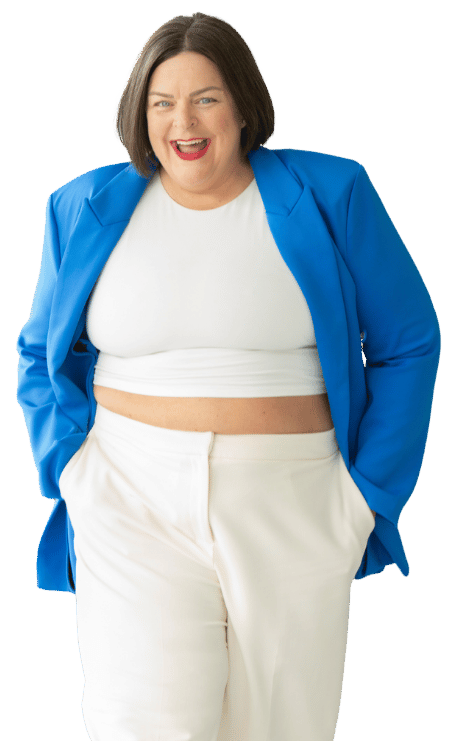
Welcome!
I’m Stephanie Dodier
Non-Diet Nutritionist & Coach
I teach and coach women how to break free from the socialized thinking of diet culture and liberate yourself from unrelenting pressure to be thinner so that you can eat in a way that truly supports your well-being and start living the life you’ll look back on with no regrets.
Join me in leading the feminist health coaching revolution!
Ready? Let’s do this!
FREE QUIZ & GUIDE
Let’s see just how much diet culture has a grip on you!
I curated 3 questionnaires to evaluate your body image, eating behaviours and mindset to see if you have been just how much your life has been impacted by diet culture.
Get ready to completely change the way you look at health?

